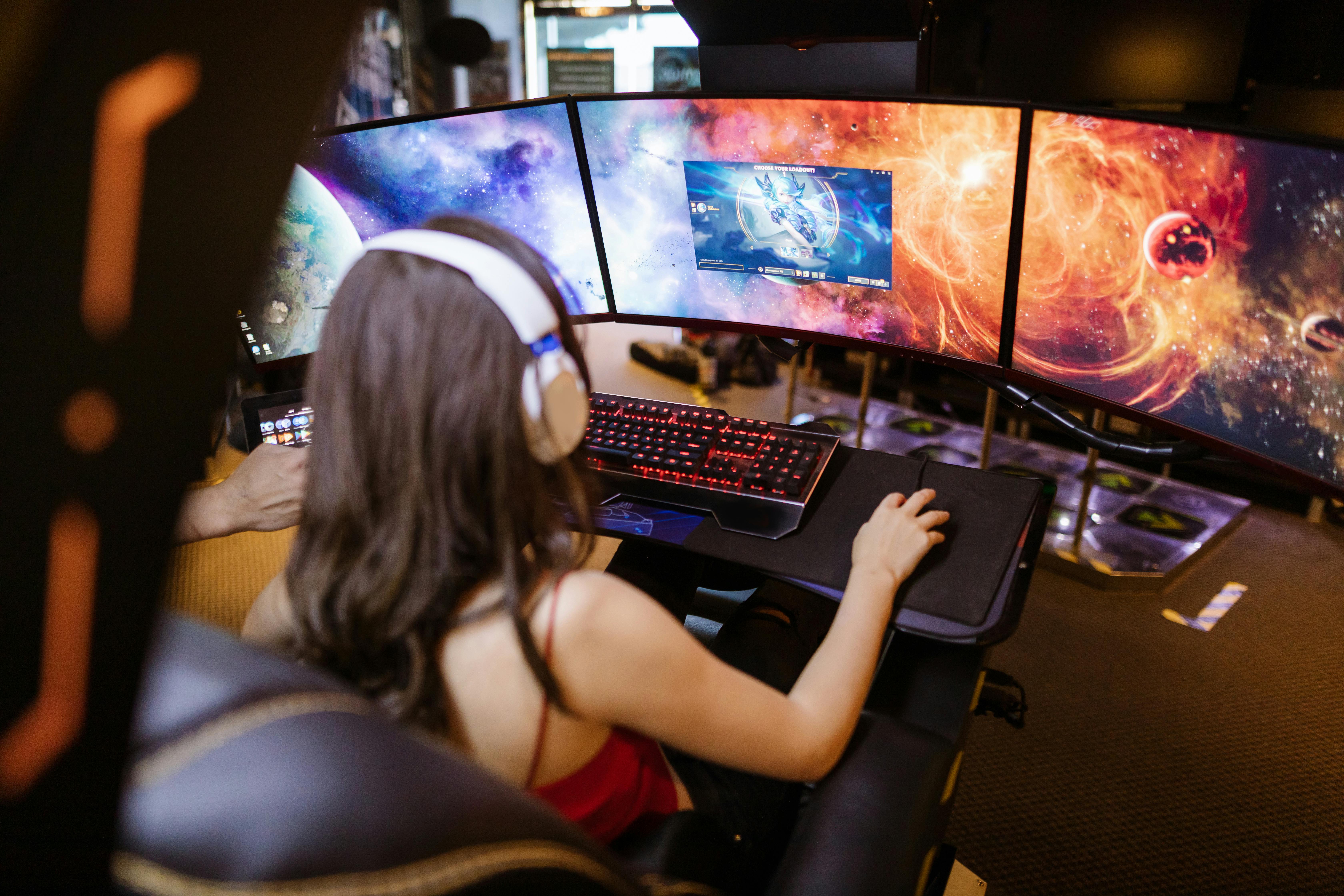9 Game Concept Examples to Inspire Your Next Project
by WriteSeen
Searching for fresh inspiration in game development? Look no further. Our collection of nine game concept examples is designed to inspire creators like you. These concepts push boundaries, featuring narrative innovation and unique gameplay.
They’re not just ideas—they’re blueprints to help you build a standout, engaging gaming experience. Dive into how diverse scenarios can unlock creative potential and elevate your next project.
1. Time-Bending Puzzle Adventure
Unlock the power of time in your game concepts. Envision players rewinding or pausing time to tackle intricate puzzles, adding a new layer of complexity to classic gameplay. Whether it's unraveling mysteries or creating new paths, time manipulation boosts engagement by offering unique problem-solving opportunities.
Consider letting players fast forward to see consequences unfold precisely. Pioneers like "Braid" and "Quantum Break" have shown how time mechanics can craft immersive stories.
- Develop multi-layered puzzles tied to player-controlled timelines.
- Implement time choices that create branch points in narratives.
- Use dynamic time effects to challenge players with evolving situations.
Time-bending not only elevates gameplay but ensures each player's journey feels uniquely theirs. This approach can deepen narrative experiences, encouraging gamers to explore multiple outcomes and replay the game.

2. Eco-Survivor Strategy
Create a game where the planet's future hinges on player decisions. In an eco-survivor strategy game, gamers navigate resource management within fragile ecosystems. They'll make choices that impact both immediate gameplay and long-term environmental health.
Incorporate real-world data to enrich the experience. For instance, focus on renewable energy sources that are rising globally. Within WriteSeen's framework, where diverse creativity thrives, creators can embed educational content. This approach not only entertains but also informs.
- Players must balance resource use with ecosystem sustainability.
- Adaptation strategies can mirror cutting-edge environmental tech.
- Decisions impact weather patterns, driven by tangible game metrics.
By weaving awareness into gameplay, these concepts inspire real-world eco-consciousness. It's an opportunity for creators to heighten players' strategic thinking while educating them on the complexities of environmental dynamics.
3. Multiverse Explorer
Take adventurers on a universe-hopping journey, embracing environments marked by distinct laws of physics and culture. A multiverse game challenges players to adapt to ever-changing conditions across unique worlds.
Diverse universes demand inventive gameplay, offering endless potential for story arcs and character-development opportunities. While navigating new realms, players are constantly tested. A game like this emphasizes novelty and adaptation, core values for our creative audience.
- Each universe has its own physics, altering how players approach challenges.
- Use procedural generation to ensure fresh content with each playthrough.
- Distinct visual and cultural themes define each universe explored.
Multiverse explorations not only captivate players but also provide a rich canvas for creation, allowing developers to construct intricate, limitless gaming landscapes.
4. AI Companion Adventure
Imagine adventures shaped by the bonds between players and AI companions. Craft stories where AI interactions significantly influence narratives and player experience. It's about more than NPCs—it's about relationships.
In this concept, an AI grows through in-game encounters, evolving both emotionally and functionally. "The Last Guardian" exemplifies how AI companions enhance gameplay depth. Offering creativity and engagement, this idea speaks to those crafting intimate player narratives.
- AI adapts and responds to player strategies, influencing story progression.
- Customized emotion-based responses enhance player immersion.
- Dialogue evolves with player input, offering personalized experiences.
These elements redefine how players connect with characters, allowing creators to build games that resonate on a deeply personal level.

5. Interactive Storybook Worlds
Create educational experiences where storytelling intertwines with interactive worlds. Our target audience can drive narratives through choice-driven mechanics. This concept not only entertains but stands as a tool for educational growth.
Innovative designs boost learning, making education engaging. Choose to blend narratives with educational themes for young audiences. Incorporate interactivity to spark curiosity while teaching core concepts.
- Blend mini-games with educational content for effortless learning.
- Allow player choice to shape outcomes, fostering independent thinking.
- Use parent-friendly controls to tailor experiences safely.
By merging play with education, interactive storybooks tap into the innate creativity of young minds. This approach cultivates a safe, dynamic learning environment, blending entertainment with foundational learning principles.
6. Culture Clash RPG
Venture into a role-playing game (RPG) that explores the clash of diverse cultures. This concept centers on understanding and navigating cultural dynamics, with gameplay rooted in diplomacy, conflict resolution, and cultural exchange.
Games like this offer a rich, narrative-driven experience, ideal for fostering empathy and curiosity. By offering players a nuanced understanding of different societies, creators can craft stories that resonate universally. Focus on storytelling that respects cultural nuances, an approach that aligns with WriteSeen’s commitment to authentic creative expression.
- Present players with moral choices influenced by cultural values.
- Use real cultural history to inform game narratives and enrich character development.
- Incorporate consultants to ensure cultural accuracy and sensitivity.
Creators can leverage these elements to create immersive worlds that both entertain and educate. It’s about building connections—between players and characters, and between digital and real-world cultures.
7. Dreamscape Platformer
Enter a platformer set in surreal dream worlds, where shifting realities and psychological undertones captivate players. A dreamscape offers designers a wide array for artistic creativity, encouraging experimentation with narrative and visual style.
Games like "Little Nightmares" illustrate how engaging uncertainty and fantasy can be. Dreamscapes pose unique challenges, igniting your creativity to its fullest potential. By giving players control to reshape dream realities, creators can engage minds in unexpected ways.
- Introduce mutable environments that change based on player actions.
- Employ unpredictable mechanics to create captivating gameplay.
- Use distinctive art styles to enhance the dreamlike atmosphere.
These features fuel imagination, allowing gamers to lose themselves in worlds only limited by their creativity. This approach invites risk-taking, giving players experiences that linger far beyond their screens.

8. Historical Anomaly Mystery
Solve puzzles across timelines in a unique historical anomaly mystery. This concept immerses players in fact and fiction, offering narratives rooted in history that challenge them to untangle the past's mysteries.
By intertwining documented history with creativity, creators can offer both engaging gameplay and educational content—a foundation of value WriteSeen emphasizes. Players delve into rich, historical settings, altering time to create intriguing scenarios.
- Design puzzles requiring knowledge of historical events to progress.
- Players’ choices generate alternate historical outcomes.
- Use archival material to ground narratives in authenticity.
This concept offers experiences that entertain and educate, sparking interest in historical events. By blending adventure with education, it can inspire a deeper understanding of our world.
9. Social Impact Simulation
Create a game that focuses on social change through simulation. This idea positions players at the forefront of urgent real-world issues, prompting them to strategize solutions. Such simulations engage players in meaningful ways, inviting them to reflect on societal impact.
These games are platforms for insight and education, aligned with WriteSeen’s vision of impactful creations. Players learn through scenario-based challenges that echo real-world complexities.
- Direct player decisions affect game-world social dynamics.
- Use real-world data to create scenarios that educate and inform.
- Encourage ethical and empathetic decision-making through gameplay.
Simulations that challenge players to think critically about social issues can inspire real-world actions, highlighting the power of gaming as a form of impactful storytelling.
Creating Compelling Game Concepts
Compelling game ideas blossom from calculated creativity and iterative feedback. Brainstorming—an essential first step—invites exploration of innovative mechanics. Develop concepts with an emphasis on incorporating diverse perspectives and tapping into current trends like AI or VR.
The write toolset refines your game concepts. At WriteSeen, ensure that when the pen hits the paper, ideas evolve from raw creativity into polished wonders. Here’s what to focus on:
- Use player feedback loops to refine gameplay dynamics.
- Develop prototypes that explore unique mechanics and narratives.
- Combine analytics with player insights to create engaging experiences.
- Foster collaboration to unlock varied viewpoints and strategies.
Honing a concept requires adaptability, understanding audience preferences, and a willingness to iterate based on feedback. These principles can foster engaging games that audiences are eager to explore and enjoy.
Conclusion
With these game concepts, imagine the possibilities for your next project. These examples provide inspiring frameworks, urging you to push the boundaries of creativity and create memorable gaming experiences. By embracing these ideas, you can captivate players and leave a lasting impact, whether through storytelling, dynamic gameplay, or educational value. Explore, create, and redefine what's possible in gaming. Let your imagination run wild, and watch your visions come to life.
TAGS